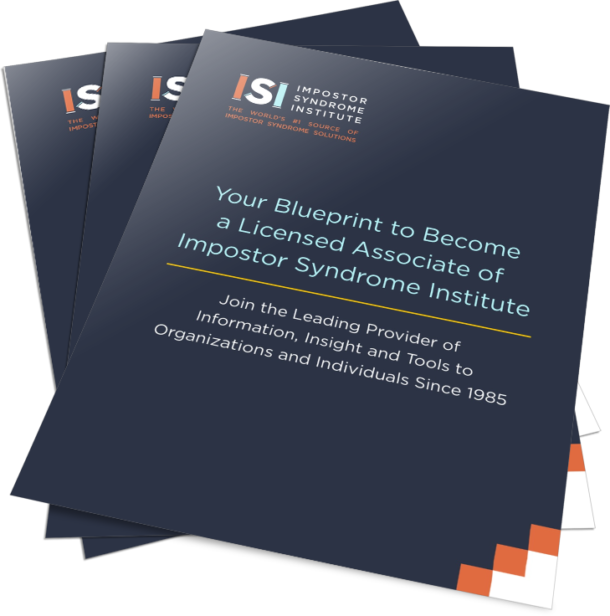Keynotes/Workshops
Keynotes/
Workshops
Millions of people worldwide — executives and entry-level professionals, first-year college students and PhDs, product managers and engineers — secretly worry they’re not as smart or talented or qualified as other people “think” they are.
It’s called impostor syndrome.
And if left unchecked, it can lead to costly consequences not only for individuals but for their organizations as well.

The Need
Impostor syndrome isn’t just an “interesting self-help topic.”
It’s a bottom-line issue that negatively impacts:
- Productivity
- Advancement
- Retention
- Innovation
- Health and well-being
If you lead, manage, mentor, coach, or train, you need to be impostor syndrome-informed.
Join the Club
A survey of UK executives found 80 percent of CEOs and 81 percent of managing directors’ somethings feel “out of their depth” and that they’re struggling with their role. They’re not alone. An estimated 82 percent of achievers — men and women — have experienced impostor syndrome. Discovering a name for these common feelings is just the first step.
Consider the Source
Impostor syndrome has been over-psychologized.
We need to normalize impostor syndrome by addressing its potential sources — societal, situational, familial, occupational, and organizational sources unrelated to bias. Doing so allows us to do less personalizing and more contextualizing.
Connection to Diversity & Inclusion
A sense of belonging fosters confidence. The pressure on the “first, among the few, or the only” to represent their entire group is real.
Groups who experience stereotypes about competence and intelligence are especially susceptible.
Stereotypes matter because the fear of confirming a negative stereotype — whether related to gender, race, class background, age, disability, or language — has been found to cause stress which in turn negatively impacts performance. Notably, the more accomplished you are, the more this effect shows up.
The Solution
People who experience impostor syndrome don’t need pat advice like “make a list of your accomplishments,” “get support,” or “banish your inner critic.”
Nor do they need their impostor feelings rebranded as some kind of “superpower.”
What people with impostor syndrome do need are three things:
- accurate information about what impostor syndrome is (and what it’s not), where it comes from, and how it works
- personal insight into how it shows up in the form of a pattern including how this pattern serves us — and importantly, at what cost, and
- most importantly, they need practical, immediately usable tools they can use to talk ourselves – or others – down more quickly.
To be clear, this is not a pep talk. If all it took was encouragement, impostor syndrome would have vanished long ago.
The only way to stop feeling like an impostor is to stop thinking like an impostor.
That’s why the key to unlearning impostor syndrome is to discover how to think like someone who is genuinely humble but has never felt like an impostor. In other words to become a Humble Realist™
Fortunately, Humble Realist thinking can be learned — and it can be supported in the organization.

